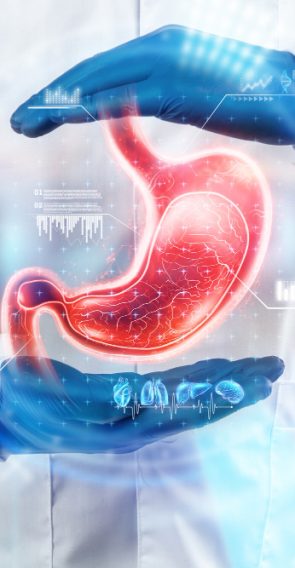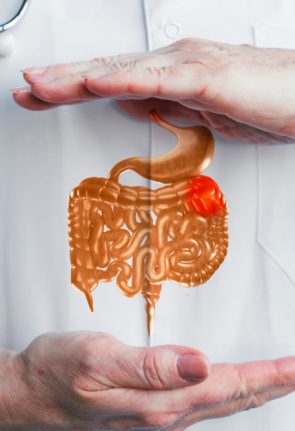21 Years Experience


About Us
Dr. Deevaguntla Chandrasekhar Reddy
Dr. Deevaguntla Chandrasekhar Reddy, a distinguished specialist in the field of Gastroenterology, brings a wealth of expertise and experience to his practice. With his D.M. in Gastroenterology, Dr. Deevaguntla is renowned for his commitment to excellence in patient care, clinical research, and medical education. Throughout his career, Dr. Deevaguntla has demonstrated a profound dedication to advancing the understanding and treatment of gastrointestinal disorders. His extensive training and specialized knowledge equip him with the skills necessary to diagnose and manage a wide range of conditions affecting the digestive system. As a clinician, Dr. Deevaguntla approaches each patient with empathy, compassion, and a patient-centered focus. He believes in the importance of building strong relationships with his patients, taking the time to listen to their concerns, thoroughly evaluate their medical history, and develop personalized treatment plans tailored to their unique needs.
What we have achieved
Achievements
specialization
Gastroenterology
Qualification
D.M.(Gastroenterology)
Our Services
Gastroesophageal Reflux Disease
Chronic Acid Reflux: Gastroesophageal Reflux Disease (GERD) is a chronic condition characterized by the frequent backflow of stomach acid into the esophagus, leading to symptoms such as heartburn, regurgitation, chest pain, and difficulty swallowing. Risk Factors and Triggers: Risk factors for GERD include obesity, hiatal hernia, pregnancy, smoking, and certain medications. Trigger foods and beverages such as fatty foods, citrus fruits, chocolate, caffeine, alcohol, and spicy foods can exacerbate symptoms. Management and Treatment: Management of GERD involves lifestyle modifications such as weight loss, dietary changes, avoiding trigger foods, and raising the head of the bed. Medications like proton pump inhibitors (PPIs), H2-receptor antagonists, and antacids are commonly prescribed to reduce acid production and alleviate symptoms. In severe cases or when medications fail to provide relief, surgical interventions such as fundoplication may be considered to strengthen the lower esophageal sphincter and prevent reflux.
Digestive disorder
Digestive Disorder: Irritable Bowel Syndrome (IBS) is a common functional gastrointestinal disorder characterized by abdominal pain, bloating, diarrhea, constipation, or a combination of these symptoms. It is a chronic condition with symptoms that may come and go over time. Triggers and Contributing Factors: IBS symptoms can be triggered or exacerbated by various factors, including stress, certain foods (such as dairy, caffeine, and spicy foods), hormonal fluctuations, and changes in gut motility or sensitivity. Psychological factors like anxiety and depression can also play a role in symptom severity. Management and Treatment: Management of IBS typically involves a combination of dietary modifications, stress management techniques, lifestyle changes, and medications. Dietary strategies may include the FODMAP diet (which reduces intake of certain carbohydrates), fiber supplementation, and avoiding trigger foods. Medications such as antispasmodics, laxatives, or antidepressants may be prescribed to alleviate specific symptoms or manage overall symptom severity. Additionally, behavioral therapies like cognitive-behavioral therapy (CBT) or gut-directed hypnotherapy may help address psychological factors contributing to symptom exacerbation.

Heart Care
Li Europan lingues es membres del sam familie.

Dental Care
Li Europan lingues es membres del sam familie.

Orthopedic
Li Europan lingues es membres del sam familie.

Ophthalmology
Li Europan lingues es membres del sam familie.
Book an appointment now
Get in touch
Working Hours
Monday - Thursday
(07.00 AM - 05.00 PM)
Sunday
There will be no consultation
What our patients say
Testimonials




